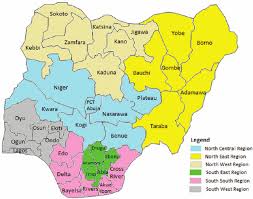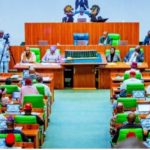The Minister of Interior, Dr. Olubunmi Tunji-Ojo has said his ministry will create an immigration amnesty program for regularization of due processes for three months and that by 1st of August, 2025, there will be strict clampdown on irregular immigrants in the country.
He also disclosed that plans are ongoing to establish an expatriate support desk as a unit in the Nigerian Immigration Service to serve interface with NECA and the Organized Private Sector on issues that borders on business permits, and expatriate quota, among others.
The minister stated this on Tuesday during a meeting between the ministry and the Organised Private Sector (NECA) on the review of citizand business service fees.
“We said from 1st of May, we will create like an immigration amnesty program for regularization of due processes for three months. So that is May to June, June to July, and of course, July to August. So by 1st of August, there will be strict clampdown on irregular immigrants and we hope that people will take advantage of the three months period to be able to regularize and subject themselves to established immigration protocols.
“We hope that will be done and that’s to take effect from the 1st of May all the way to the 1st of August. So I think this is more or less the summary of what we agreed,” he noted.
He warned that the era where some companies behave irresponsibly by distorting, blocking, and flouting immigration laws will no longer be tolerated.
“We have decided to establish what we will call expatriate support desk as a unit in the Nigerian Immigration Service. This will be a unit that will have responsibility for constant interface with NECA and the Organized Private Sector on issues that borders on business permits, expatriate quota, and in any area that the Ministry of Interior is needed to be able to support the private sector.
“So it will be a standing unit, not an ad hoc arrangement, we will not put it as part of the organogram, organizational structure of the service. So we agreed that within the next one week that team should be set up and of course the Organized Private Sector will send their own channels and representatives for the interface.
“And we also agreed that they won’t be based on the reforms that is happening with regards to the EAS, that’s what we will call the expatriate administration system, which is a system that eradicates black spots in terms of our expatriate administration process in Nigeria,” he stressed.
The minister thanked the Organized Private Sector for the collaboration, saying; “we can achieve a lot when we collaborate and I want to thank you so much, it has been a very purposeful meeting and we have gone beyond the review of fees to certain policy pronouncements and I want to start with those specific policy pronouncements.”
He harped sensitization even as he maintained the importance of understudies.
“We also spoke about the issue of the understudy that we think is our collective responsibility to be responsible citizens and to be responsible actors in the Nigerian project and being responsible includes obeying laws. There are laws administering understudy in terms of our expatriate administration system and these laws must be followed and we must make sure that knowledge transfer becomes key, in terms of job creation within the Nigerian space.
“So we have agreed that we put in more effort in making sure that understudies are taken to the next level. So the Department of C&B is expected to do that and quarterly reports is expected from the Department of C&B with regards to business permit and understudies. So we have decided on that and also, we have also set up another committee and also decided to extend the lifespan of the existing committee so that they can handle the issue of processes, policies, protocols within the expatriate administration system.
“We want a joint committee of the private sector and government, the Ministry of Interior, because we don’t want to issue policies that will injure businesses. We want to be able to team up together, protect the interest of Nigerians and also ensure that businesses continue to grow. So we will, we’ve given them six weeks to come up with a final protocol and process for the expatriate administration system.”












